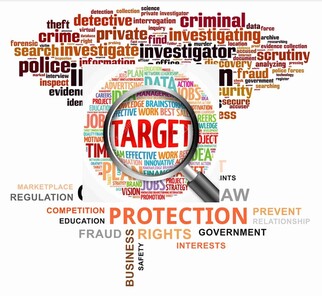
Since late 2016 our profession has faced a growing assault on our access to important public records. This assault has been primarily from the same online media outlets, and reported here multiple times (search our blogs for ‘privacy’). Beginning late 2019 this grew literally by the month, sometimes consecutive weeks. This has gained the attention of lawmakers and regulators – state and federal, who are taking up considerations to act on state and federal versions of the Drivers Protection Privacy Act (DPPA), Fair Credit Reporting Act (FCRA), Fair Debt Collection Practices Act (FDCPA), Graham-Leach-Bliley Act (GLB) and others.
NCISS, NALI and state associations are all working together for you. Your membership and support are needed or we – you – will likely lose our – your – access to these regulated public records at the discretion of misinformed and zealous privacy advocates. At the heart of this is the access to driver license records.
One such action being taken is a state associations / NCISS joint resolution for Professional Investigators related to driver license records access. This resolution would be similar to the NCISS 2008 restrictions for about individual locates and subject data – www.nciss.org/code-of-ethics and disclosure / non-disclosure. Our agency has also recommended every association adopt a Standards of Practice for all members to follow – we adapted ours from Colorado's licensing program (www.DeathCaseReview.com/standards). These are not enough. There will be active fights at state and national levels – letter and testimony campaigns – by association leaders and members volunteering their time and resources to preserve this important information resource for legitimate purposes. With each records request there is a multi-factor requirement: 1) the permitted entity, such as a licensed private investigator; and 2) the permitted purpose, such as litigation. Having only one of these will result in a denial. So what is the perceived problem?
The biased media propaganda repeatedly states two things: 1) states are making millions selling private personal data (driver license records), and to Professional Investigators; and 2) the purpose of anticipated litigation is too vague and permissive. Professional Investigators are the low hanging fruit. There are reasons for this perception.
For as long as Professional Investigators have existed we have been our own worst enemies. Specifically, when any government entity (i.e. state licensing audit, DMV audit, clients, etc.) checks out a PIs website and sees the stereotypical "We'll track any cheating spouse" – surveillance, GPS, "We can look at any computer or phone and tell you what your spouse has been doing." and so on – damage is done (this has cost some states their GPS use to PIs). Sure, most PIs screen the client and case – but their catchy website graphics and text have done the damage in giving a bad name. For those who doubt this is true – read any related media story, past and current legislative testimony, and states – FL, CA, TX, NC and others have all reported doing this and denying records. Even professional language is attacked – if a PIs site has said they provide any service other than what an auditor finds acceptable for access, they are denied. It has and is happening now. What isn't bad enough on websites is worse on social media groups. We have previously reported the dangers of PIs negligently posting on social media, particularly in professional groups. We have warned moderators the media and state auditors are monitoring these posts. This is where most of the bad stereotype stories have been coming from.
PIs access to data providers is not their purpose or concern – we are allowed access because there has not been a reason to keep us out. This is moving fast to change in 2021 and to keep PIs out. Despite the misinformation in the online media – PIs do not make up even more than 5% of the subscribers to data, and even less in revenue volume. PIs are simply low hanging fruit and with bad apples posting on their websites and social media flagrant privacy violations, and bad actors committing illegal acts – the target is on the back of every PI. Data providers – government and private – will quickly ban PIs if doing so will protect them, still give the access to data, and still keep their largest clients – many of whom are our own clients – attorneys, insurance companies, collections, etc.
Professional Investigators legitimately request and use all data. We are vetted before licensure, we are vetted for association memberships, and we are vetted at the point of records requests and access (government or aggregate data provider). Our access and use of records is not only screened multiple times before a request, our request is vetted again specific to the request. What can we do to demonstrate our professionalism?
- Clean up your website of any catchy and potentially derogatory slang, slogans, and services.
- Clean up your social media posts disclosing anything another person may exploit, misunderstand, use against you or simply makes our profession look bad. Use professional editorial.
- Be ambassadors for your agency, your reputation, and our profession – be positive and professional.
- Join, support, and be active in your state and national associations for legislative advocacy (www.privateinvestigations.org/associations). If you do not have this advocacy, you do not have the data and resources you – and your clients – need.
Remember – this is not about your access to information as a professional investigator. This is about your ability to do the best job for your client, because that is why they have retained you. Why have they retained you, and why do you need access to these records?
- Locate children abducted by their non-custodial parents and reunite them with their families.
- Track down deadbeat parents.
- Uncover insurance fraud by verifying the identity and background of claimants.
- Assist identity theft victims.
- Conduct background investigations of employees who have threatened other employees.
- Locate and serve witnesses in civil and criminal, including capital defense cases.
- Identify pedophiles, sexual predators, and stalkers.
- Locate a missing family member for probate or organ donor for transplants and bone marrow matches.
- Conduct pre-employment backgrounds of applicants of childcare centers, schools, health care facilities.
- Conduct due diligence investigations to satisfy the judicial system.
Be prepared for the legislative and regulatory rulemaking response, "We are not eliminating access to the record for attorneys, insurance companies, collections, etc. It is the middleman we are eliminating to stop these nefarious activities." Your part begins with being active – www.privateinvestigations.org/associations.


